blog_pee-wee-kittens_08719_main.png

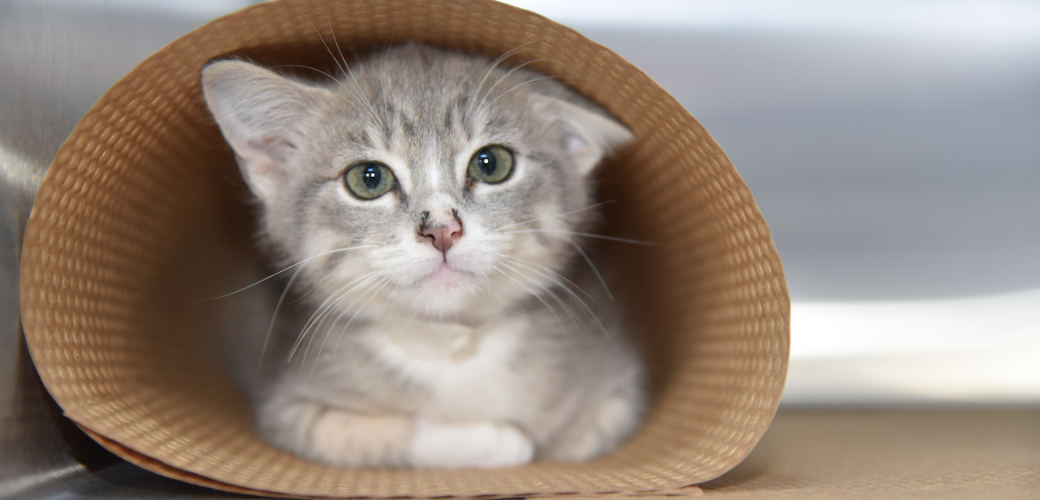
The purrks of fostering kittens are endless. But one very rewarding moment is when foster caregivers send-off their feline fosters to begin new lives as adopted pets. It’s especially exciting when those kittens are getting a lift to a new home aboard a 900-mile flight.
That was the case for a group of Los Angeles-area volunteers who fostered a total of 29 kittens recently through the ASPCA’s L.A. Kitten Foster program.
Welcome Pee Wees
Pee Wee kittens are aged four-to-eight weeks, and during kitten season, a high number of them enter Los Angeles County shelters. But many are too vulnerable to survive in a shelter environment. Kittens of this age, particularly orphans, are unable to thrive in the shelters and require foster homes to stand a chance at a happy future. That’s why the ASPCA partners with two high-volume Los Angeles shelters—Downey and Baldwin Park Animal Care Centers.
blog_pee-wee-kittens_08719_body1.png

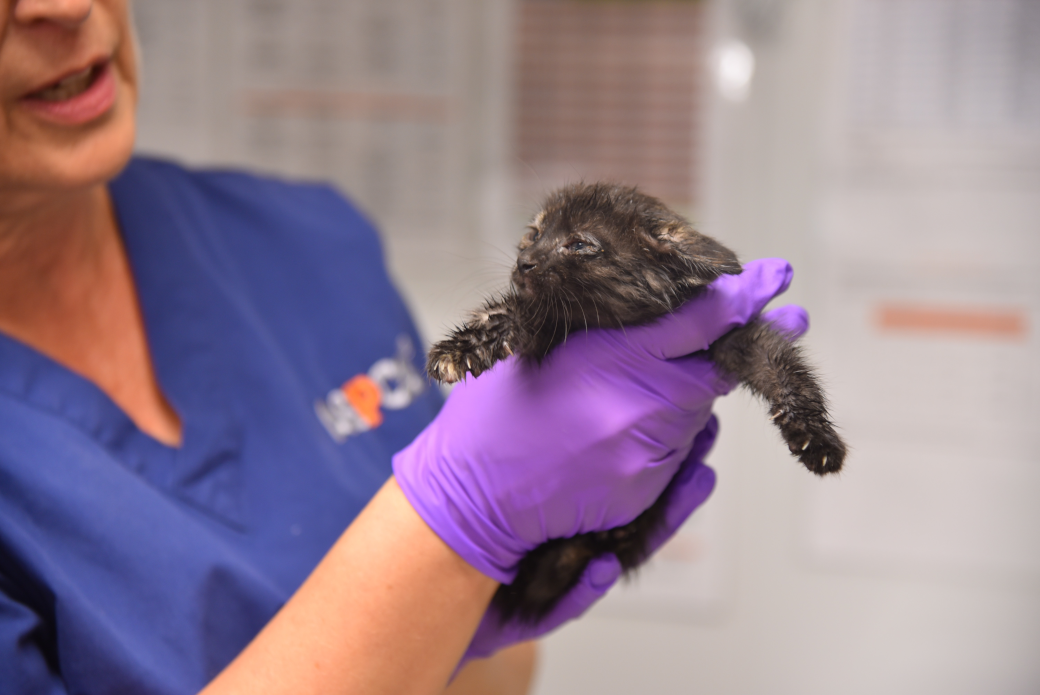
When a Pee Wee kitten is brought in to one of these shelters, County of Los Angeles Animal Care and Control Officers notify the ASPCA teams who work onsite at both Animal Care Centers, and a veterinary technician checks their condition and provides any treatment they require. Then the Pee Wee Foster Care team matches the kitten with a dedicated foster parent from the ASPCA foster roster. These kittens stay in their volunteer foster homes until they are healthy and strong enough for adoption. Since the foster program began in 2016, the ASPCA has cared for more than 4,000 kittens in Los Angeles. This year alone, the L.A. Kitten Foster program has taken in 1,113 kittens for fostering.
“It is very important to take these small kittens before they enter the shelter, especially those tiny ones that may not survive in the shelter environment,” Carol A., a veterinary technician on the L.A. Kitten Foster team, tells us. “Doing a full exam which includes deworming, woods lamp, vaccines, flea treatment and microchip, if possible, prior to sending to foster is crucial to the kittens wellbeing and future.”
blog_pee-wee-kittens_08719_body2.png

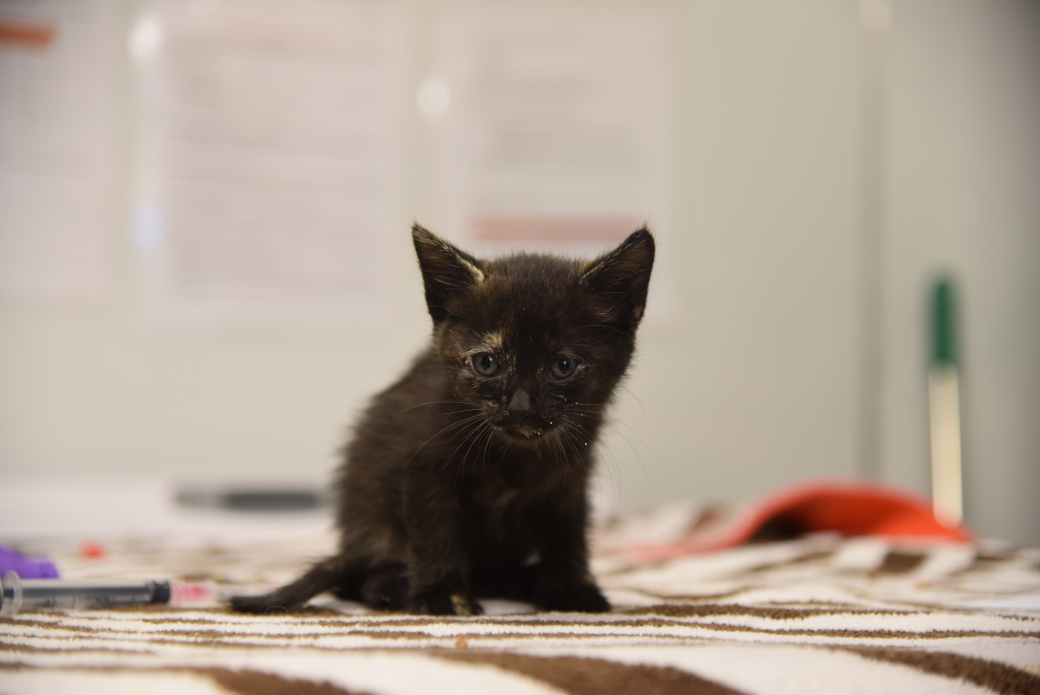
When their time in foster care is over, there aren’t always enough permanent homes available locally for all the kittens who need them. That’s why relocation is such an important part of saving homeless animals, and it’s why our West Coast Animal Relocation program teams up with L.A. County shelters and with transport partners like Alaska Airlines. Together, we transport shelter animals from the L.A. area to destination shelters that have more space and higher demand for adoptable animals. Relocation, whether aboard our transport vehicles or the airplanes of our partners, can give homeless animals a greater chance at adoption. Between 2014 and 2018, the L.A. Relocation team transported 39,228 animals and is on pace to hit 50,000 in 2019.
Preparing to Fly
Ready to join permanent homes, these particular Pee Wee foster kittens were bound for Portland, Oregon. The Oregon Humane Society, a relocation partner of the ASPCA, was eagerly awaiting to place these tiny kitties up for adoption. But before they could board their flight, they needed spay/neuter surgeries, vaccinations, and health certificates to cross state lines. And the ASPCA Community Medicine team was at the ready with expert and efficient care.
blog_pee-wee-kittens_08719_body3.png

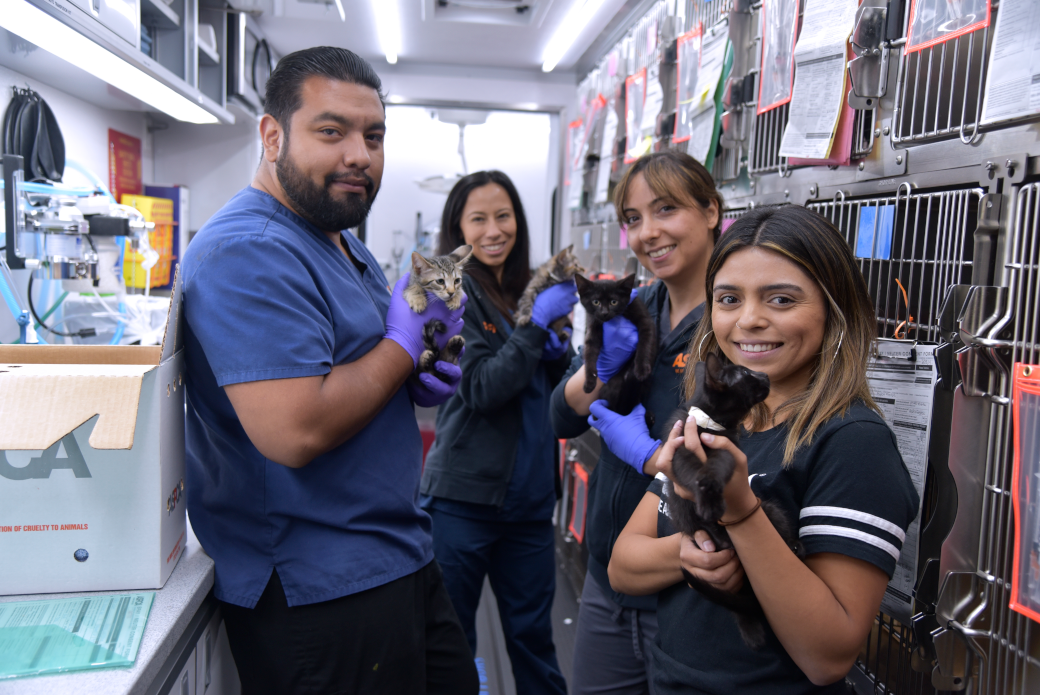
This partnership between the ASPCA Relocation and Community Medicine teams enables transported animals to avoid medical hold-ups and quickly reach their destination. And the sooner they can be adopted, the sooner the shelter or rescue group can take in more homeless animals and save more lives—and the cycle to loving homes continues.
The morning of the spay/neuter surgeries, the Pee Wees’ foster parents brought their kittens to South Los Angeles. Stationed there was the ASPCA’s newest mobile spay/neuter clinic, made possible by the generosity of Kathy Taggares, a caring friend to animals and compassionate supporter of the ASPCA.
blog_pee-wee-kittens_08719_body4.png

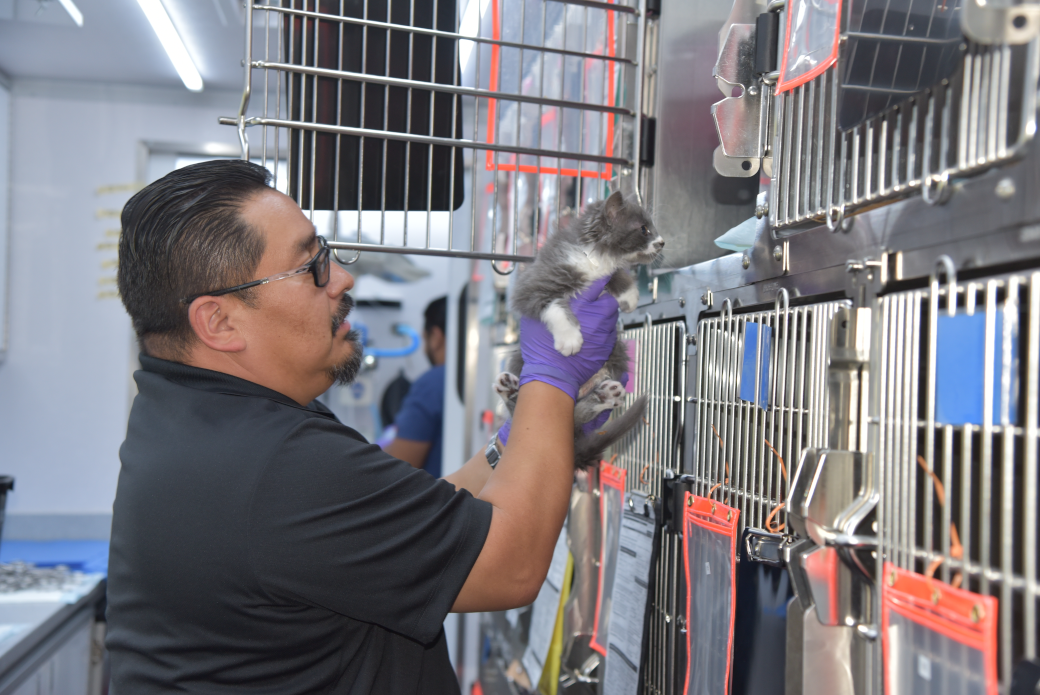
At the mobile clinic, our veterinary teams provided high-quality spay/neuter and vaccinations, and to help keep our tiny patients calm before their procedures they get to curl up in “purritos,” tubes that give fearful kittens a space to hide and feel secure.
blog_pee-wee-kittens_08719_body5.png

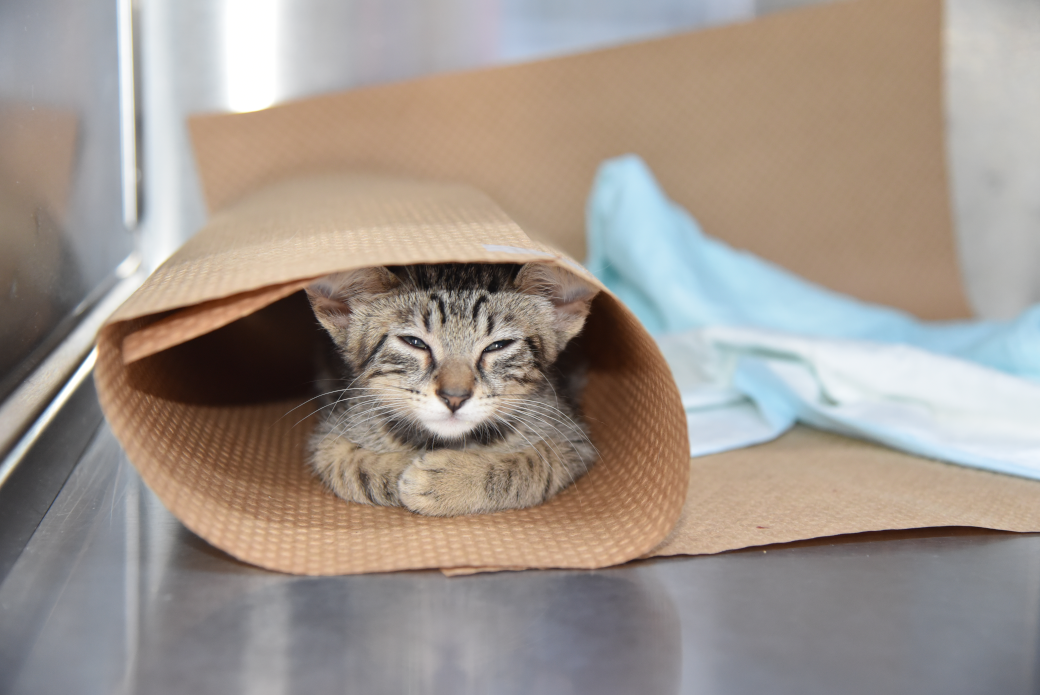
Veteran ASPCA foster caregiver, Ashley C., who fostered four of the Portland-bound Pee Wees and brought them to the mobile spay/neuter clinic, says, “It was wonderful to see first-hand the incredible care our kittens receive during the process!”
blog_pee-wee-kittens_08719_body6.png

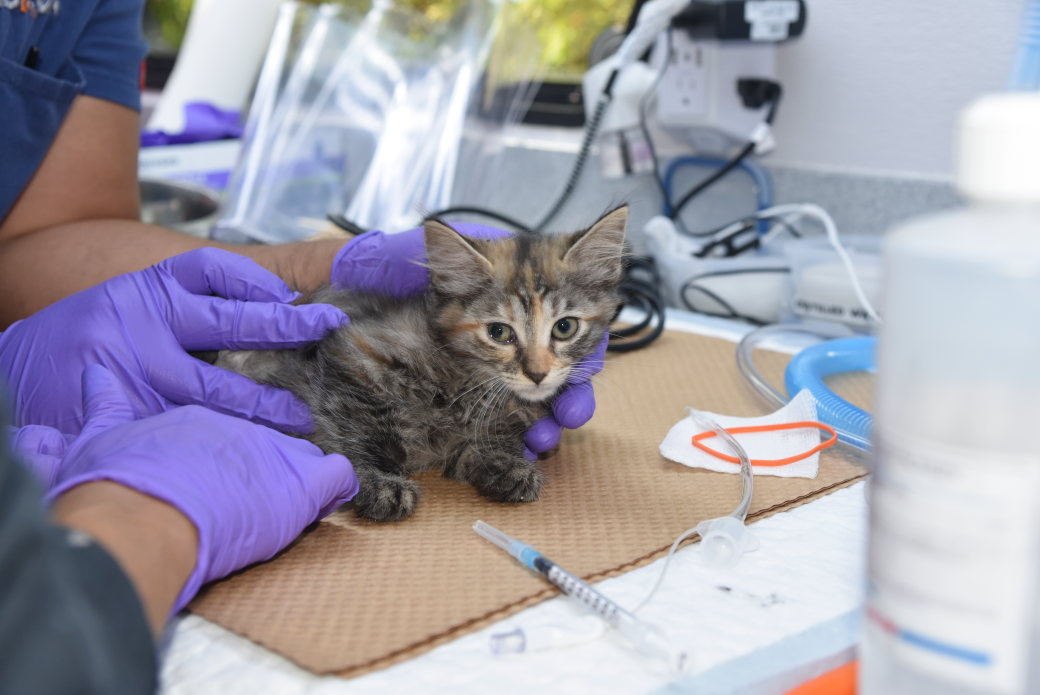
“So many staff members from different departments came together and worked tirelessly to make this a successful program,” says Dr. Peyvand Silverman, Veterinary Staff Manager of the Community Medicine team in L.A. “Everyone was so committed to work through barriers without any hesitation to ensure these kittens made their transport.”
All Aboard!
Once cleared for travel, and after heartfelt goodbyes from their foster caregivers, the kittens were transported aboard an ASPCA transport vehicle to the ASPCA’s Way Station at FixNation, a partner clinic, for a weekend of care and monitoring to ensure they remained healthy enough for their flight.
blog_pee-wee-kittens_08719_body7.png

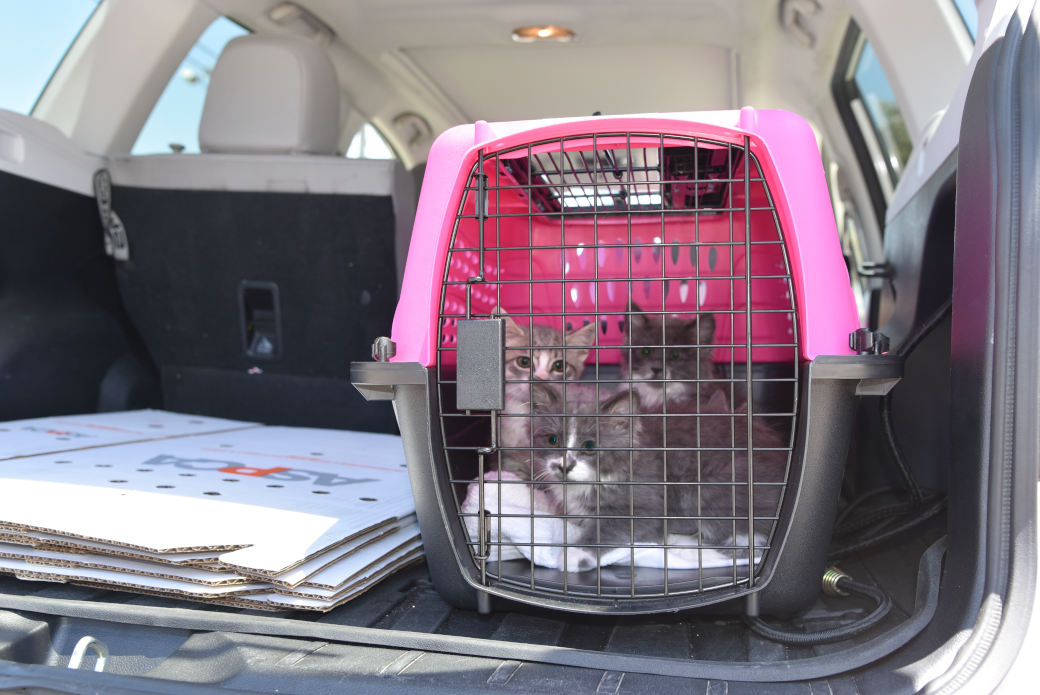
Then it was off to Los Angeles International Airport, where our Relocation team carefully tucked each kitten securely into their carriers for the 900-mile flight.
Alaska Airlines has been an ASPCA transport partner for the last 4 years, helping to relocate more than 8,150 animals over a total of 742 flights, and was well prepared to handle their Pee Wee passengers.
This teamwork and coordination between ASPCA programs, volunteers, transport partners and rescue groups are critical to give vulnerable kittens a chance at being adopted. The hard work and dedication of those involved is all worth it when the kittens are comfortable and loved in their new homes.
Source: Read Full Article
